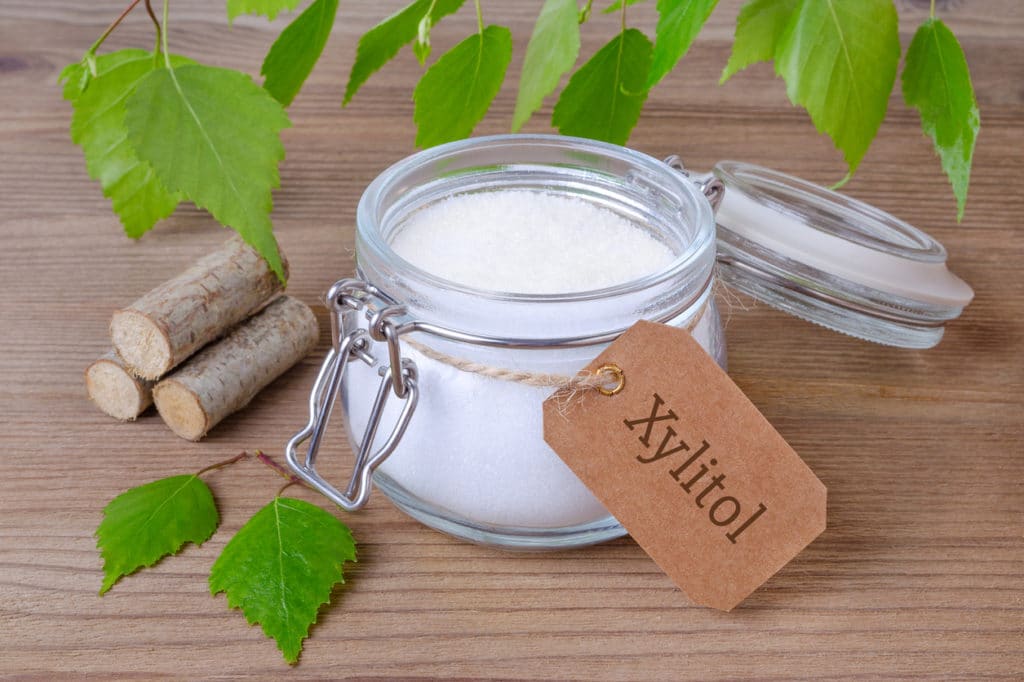Introduction: Rethinking Sweetness for a Healthier Smile
Sugar substitute? Sugar is everywhere. While everyone craves a little sweetness, eating too much sugar can lead to tooth decay, weight gain, and other health problems. That’s why many people look for alternatives or sugar substitutes like xylitol. But what exactly is xylitol, and is it a smart choice for your health?
At Innovative Dentistry, we hear these questions often. In this guide, you’ll learn what xylitol is, how it benefits your teeth, and how to use it safely and effectively.
What Is Xylitol? A Natural Sweetener with a Twist
Xylitol is a sugar alcohol that naturally occurs in many fruits and vegetables. Unlike table sugar, xylitol has a unique structure that mouth bacteria cannot use for energy. Because of this, xylitol does not feed the bacteria that cause cavities. You’ll find xylitol in sugar-free gum, mints, toothpaste, and even some medicines. Many people choose xylitol because it tastes sweet but does not harm teeth.
How Xylitol Supports Oral Health
Reduces Cavity-Causing Bacteria
Xylitol works against harmful bacteria like Streptococcus mutans. When you use xylitol, these bacteria cannot stick to your teeth as easily. As a result, less plaque forms, and your risk for cavities drops.
Stimulates Saliva Production
Chewing xylitol gum or using xylitol mints increases your saliva flow. Saliva naturally protects your teeth by washing away food particles and neutralizing acids. Therefore, more saliva means better protection for your enamel.
Inhibits Biofilm Formation
Xylitol also interferes with the creation of biofilms, which are sticky layers of bacteria on your teeth. With less biofilm, harmful bacteria struggle to survive, and your mouth stays healthier.
May Help Reverse Early Tooth Decay
Some studies suggest that xylitol helps remineralize enamel. If you have early signs of tooth decay, using xylitol might help your teeth repair themselves before a cavity forms.
Other Potential Benefits of Xylitol
May Lower Risk of Ear Infections
Research shows that xylitol gum or lozenges can reduce ear infections, especially in children. Since xylitol affects bacteria in the mouth and throat, it may help prevent infections from spreading to the ears.
May Support Bone Health
Animal studies indicate that xylitol might improve bone density. While more research in humans is necessary, early results look promising.
Helps Control Blood Sugar
Xylitol has a low glycemic index. That means it does not cause rapid spikes in blood sugar. People with diabetes or those watching their blood sugar can use xylitol as a safer alternative to regular sugar.
How to Use Xylitol for Maximum Benefit
Use Xylitol Several Times a Day
For the best results, use xylitol after meals and snacks. Chewing xylitol gum for 15-20 minutes after eating can help protect your teeth.
Aim for the Right Amount
Experts recommend 6-10 grams of xylitol per day, divided into small doses. You can find this amount in several pieces of xylitol gum or mints throughout the day.
Choose High-Quality Products
Always check the ingredient list. Make sure xylitol is the main sweetener. Xylitol gum, mints, toothpaste, and mouthwash are all good options.
Important Considerations and Safety Tips
Watch for Digestive Discomfort
Some people experience gas or bloating if they consume too much xylitol. Start with small amounts and increase slowly to see how your body reacts.
Protect Your Pets
Xylitol is extremely dangerous for dogs. Even a small amount can cause serious health problems. Always keep xylitol products away from pets and contact your vet immediately if your pet eats any.
Know the Source
Most xylitol comes from corn, but some brands use birch trees. If you have a corn allergy, look for birch-derived xylitol. Make sure to always research any sugar substitutes you pick.
Xylitol vs. Other Sugar Substitutes
| Sugar Substitute | Benefits | Considerations |
|---|---|---|
| Xylitol | Promotes oral health, stimulates saliva, low GI | Can cause digestive discomfort, toxic to dogs |
| Stevia | Natural, zero calories, does not raise blood sugar | Some dislike the aftertaste |
| Erythritol | Low calorie, gentle on digestion | Less effective for oral health |
| Sucralose (Splenda) | Zero calories, very sweet | Long-term safety still under review |
Is Xylitol Right for You?
Xylitol is a sugar substitute can be a powerful tool for a healthier smile. If you often get cavities or have dry mouth, adding xylitol to your routine may help. However, remember that no sweetener replaces brushing, flossing, and regular dental checkups. Use xylitol as part of a complete dental care plan.
Ask Us About Xylitol
At Innovative Dentistry, we want to help you make the best choices for your teeth. If you have questions about xylitol or other sugar substitute, visit our contact page or call (206) 622-2999 to schedule an appointment.
References:
Life Extension Magazine: https://www.lifeextension.com/magazine/2014/2/sweet-as-sugar-health-benefits-of-stevia-and-xylitol/page-01

